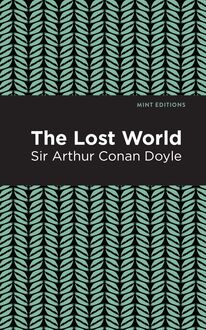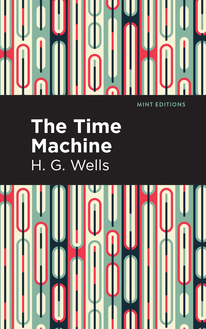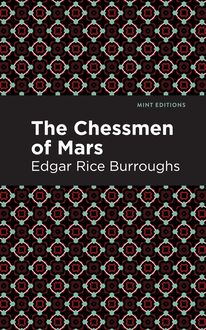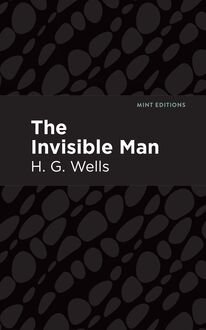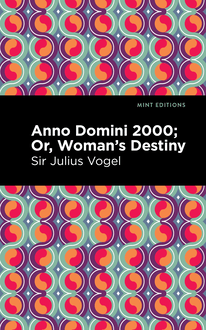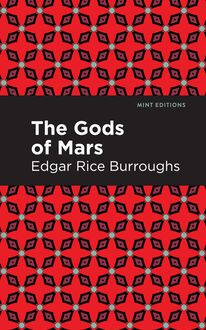-
 Univers
Univers
-
 Ebooks
Ebooks
-
 Livres audio
Livres audio
-
 Presse
Presse
-
 Podcasts
Podcasts
-
 BD
BD
-
 Documents
Documents
-
- Cours
- Révisions
- Ressources pédagogiques
- Sciences de l’éducation
- Manuels scolaires
- Langues
- Travaux de classe
- Annales de BEP
- Etudes supérieures
- Maternelle et primaire
- Fiches de lecture
- Orientation scolaire
- Méthodologie
- Corrigés de devoir
- Annales d’examens et concours
- Annales du bac
- Annales du brevet
- Rapports de stage
La lecture à portée de main
Vous pourrez modifier la taille du texte de cet ouvrage
Découvre YouScribe en t'inscrivant gratuitement
Je m'inscrisDécouvre YouScribe en t'inscrivant gratuitement
Je m'inscrisEn savoir plus
Vous pourrez modifier la taille du texte de cet ouvrage
En savoir plus

Description
In the distant future, an ageless society with a strict government, faces a small rebellion from citizens eager to break away from their rule. It is a cautionary tale that portrays the dangers of immortality. A futuristic society discovers the key to a long and ageless life. Scientists have developed an elixir that allows citizens to live beyond expectations. With this advancement comes new regulations that require each person to embrace uniform behaviors. Without the limitation of death, people become mindless and apathetic to one another. Overpopulation is controlled by a unique policy in which each birth must be justified by a death. A group of vigilantes attempt to disrupt this system, with hopes of returning to nineteenth-century norms. A notable predecessor to Aldous Huxley's Brave New World, The Inner House explores the social and ethical conflicts surrounding immortality. Walter Besant delivers a cautionary tale where death is rare and often unexpected. With an eye-catching new cover, and professionally typeset manuscript, this edition of The Inner House is both modern and readable.
Sujets
Informations
| Publié par | Mint Editions |
| Date de parution | 14 mai 2021 |
| Nombre de lectures | 0 |
| EAN13 | 9781513286372 |
| Langue | English |
| Poids de l'ouvrage | 1 Mo |
Informations légales : prix de location à la page 0,0450€. Cette information est donnée uniquement à titre indicatif conformément à la législation en vigueur.
Extrait
The Inner House
Walter Besant
The Inner House was first published in 1888.
This edition published by Mint Editions 2021.
ISBN 9781513281353 | E-ISBN 9781513286372
Published by Mint Editions®
minteditionbooks.com
Publishing Director: Jennifer Newens
Design & Production: Rachel Lopez Metzger
Project Manager: Micaela Clark
Typesetting: Westchester Publishing Services
C ONTENTS P ROLOGUE : A T THE R OYAL I NSTITUTION I. T HE S UPPER -B ELL II. G ROUT , S UFFRAGAN III. C HRISTINE AT H OME IV. W HAT IS L OVE ? V. T HE O PEN D OOR VI. T HE A RCH P HYSICIAN VII. T HE F IDELITY OF J OHN L AX VIII. T HE A RCH T RAITOR IX. I N THE I NNER H OUSE X. T HE C OUNCIL IN THE H OUSE XI. T HE T RIAL AND S ENTENCE XII. T HE R EBELS XIII. T HE E XECUTION XIV. P RISONERS XV. T HE R ECRUITING S ERGEANT XVI. A M OST U NEXPECTED C ONCLUSION
P ROLOGUE
At the Royal Institution
“Professor!” cried the Director, rushing to meet their guest and lecturer as the door was thrown open, and the great man appeared, calm and composed, as if there was nothing more in the wind than an ordinary Scientific Discourse. “You are always welcome, my friend, always welcome”—the two enthusiasts for science wrung hands—“and never more welcome than to-night. Then the great mystery is to be solved at last. The Theatre is crammed with people. What does it mean? You must tell me before you go in.”
The Physicist smiled.
“I came to a conviction that I was on the true line five years ago,” he said. “It is only within the last six months that I have demonstrated the thing to a certainty. I will tell you, my friend,” he whispered, “before we go in.”
Then he advanced and shook hands with the President.
“Whatever the importance of your Discovery, Professor,” said the President, “we are fully sensible of the honor you have done us in bringing it before an English audience first of all, and especially before an audience of the Royal Institution.”
“Ja, Ja, Herr President. But I give my Discovery to all the world at this same hour. As for myself, I announce it to my very good friends of the Royal Institution. Why not to my other very good friends of the Royal Society? Because it is a thing which belongs to the whole world, and not to scientific men only.”
It was in the Library of the Royal Institution. The President and Council of the Institution were gathered together to receive their illustrious lecturer, and every face was touched with interrogation and anxiety. What was this Great Discovery?
F OR SIX MONTHS THERE HAD appeared, from time to time, mysterious telegrams in the papers, all connected with this industrious Professor’s laboratory. Nothing definite, nothing certain: it was whispered that a new discovery, soon about to be announced, would entirely change the relations of man to man; of nation to nation. Those who professed to be in the secret suggested that it might alter all governments and abolish all laws. Why they said that I know not, because certainly nobody was admitted to the laboratory, and the Professor had no confidant. This big-headed man, with the enormous bald forehead and the big glasses on his fat nose—it was long and broad as well as fat—kept his own counsel. Yet, in some way, people were perfectly certain that something wonderful was coming. So, when Roger Bacon made his gunpowder, the monks might have whispered to each other, only from the smell which came through the key-hole, that now the Devil would at last be met upon his own ground. The telegrams were continued with exasperating pertinacity, until over the whole civilized world the eyes of all who loved science were turned upon that modest laboratory in the little University of Ganzweltweisst am Rhein. What was coming from it? One does not go so far as to say that all interest in contemporary business, politics, art, and letters ceased; but it is quite certain that every morning and every evening, when everybody opened his paper, his first thought was to look for news from Ganzweltweisst am Rhein.
But the days passed by, and no news came. This was especially hard on the leader-writers, who were one and all waiting, each man longing to have a cut in with the subject before anybody else got it. But it was good for the people who write letters to the papers, because they had so many opportunities of suggestion and surmise. And so the leader-writers got something to talk about after all. For some suggested that Prof. Schwarzbaum had found out a way to make food artificially, by chemically compounding nitrogens, phosphates, and so forth. And these philosophers built a magnificent Palace of Imagination, in which dwelt a glorified mankind no longer occupied in endless toil for the sake of providing meat and drink for themselves and their families, but all engaged in the pursuit of knowledge, and in Art of all kinds, such as Fiction, Poetry, Painting, Music, Acting, and so forth, getting out of Life such a wealth of emotion, pleasure, and culture as the world had never before imagined. Others there were who thought that the great Discovery might be a method of instantaneous transmission of matter from place to place; so that, as by the electric wire one can send a message, so by some kind of electric method one could send a human body from any one part of the world to any other in a moment. This suggestion offered a fine field for the imagination; and there was a novel written on this subject which had a great success, until the Discovery itself was announced. Others, again, thought that the new Discovery meant some great and wonderful development of the Destructive Art; so that the whole of an army might be blown into countless fragments by the touch of a button, the discharge of a spring, the fall of a hammer. This took the fancy hugely, and it was pleasant to read the imaginary developments of history as influenced by this Discovery. But it seemed certain that the learned Professor would keep it for the use of his own country. So that there was no longer any room to doubt that, if this was the nature of the Discovery, the whole of the habitable world must inevitably fall under the Teutonic yoke, and an Empire of Armed Peace would set in, the like of which had never before been witnessed upon the globe. On the whole, the prospect was received everywhere, except in France and Russia, with resignation. Even the United States remembered that they had already many millions of Germans among them; and that the new Empire, though it would give certainly all the places to these Germans, would also save them a great many Elections, and therefore a good deal of trouble, and would relieve the national conscience—long grievously oppressed in this particular—of truckling to the Irish Vote. Dynamiters and anarchists, however, were despondent, and Socialists regarded each other with an ever-deepening gloom. This particular Theory of the great Discovery met, in fact, with universal credence over the whole civilized globe.
From the great man himself there came no sign. Enterprising interviewers failed to get speech with him. Scientific men wrote to him, but got no real information in reply. And the minds of men grew more and more agitated. Some great change was considered certain—but what?
One morning—it was the morning of Thursday, June 20, 1890—there appeared an advertisement in the papers. By the telegrams it was discovered that a similar advertisement had been published in every great city all over the world. That of the London papers differed from others in one important respect—in this, namely: Professor Schwarzbaum would himself, without any delay, read before a London audience a Paper which should reveal his new Discovery. There was not, however, the least hint in the announcement of the nature of this Discovery.
“Y ES ,” SAID THE P HYSICIST , SPEAKING slowly, “I have given the particulars to my friends over the whole earth; and, as London is still the centre of the world, I resolved that I would myself communicate it to the English.”
“But what is it?—what is it?” asked the President.
“The Discovery,” the Professor continued, “is to be announced at the same moment all over the world, so that none of the newspapers shall have an unfair start. It is now close upon nine o’clock by London time. In Paris it is ten minutes past nine; in Berlin it is six minutes before ten; at St. Petersburg it is eleven o’clock; at New York it is four o’clock in the afternoon. Very good. When the clock in your theatre points to nine exactly, at that moment everywhere the same Paper will be read.”
In fact, at that moment the clock began to strike. The President led the way to the Theatre, followed by the Council. The Director remained behind with the Lecturer of the evening.
“My friend,” said Professor Schwarzbaum, “my subject is nothing less”—he laid his finger upon the Director’s arm—“nothing less than ‘The Prolongation of the Vital Energy.’”
“What! The Prolongation of the Vital Energy? Do you know what that means?” The Director turned pale. “Are we to understand—”
“Come,” said the Professor, “we must not waste the time.”
Then the Director, startled and pale, took his German brother by the arm and led him into the Theatre, murmuring, “Prolongation… Prolongation… Prolongation… of the Vital—the Vital—Energy!”
The Theatre was crowded. There was not a vacant seat: there was no more standing room on the stairs; the very doors of the gallery were thronged: the great staircase was thronged with those who could not get in, but waited to get the first news. Nay, outside the Institution, Albemarle Street was crowded with people waiting to hear what this great thing might be which all the world had waited six months to hear. Within the Theatre, what an audience! For the first time in English history, no respect at all had been paid to rank: the people gathered in the Theatre were all that the great City could boast that was distinguished in science, art, and letters. Those present were
-
 Univers
Univers
-
 Ebooks
Ebooks
-
 Livres audio
Livres audio
-
 Presse
Presse
-
 Podcasts
Podcasts
-
 BD
BD
-
 Documents
Documents
-
Jeunesse
-
Littérature
-
Ressources professionnelles
-
Santé et bien-être
-
Savoirs
-
Education
-
Loisirs et hobbies
-
Art, musique et cinéma
-
Actualité et débat de société
-
Jeunesse
-
Littérature
-
Ressources professionnelles
-
Santé et bien-être
-
Savoirs
-
Education
-
Loisirs et hobbies
-
Art, musique et cinéma
-
Actualité et débat de société
-
Actualités
-
Lifestyle
-
Presse jeunesse
-
Presse professionnelle
-
Pratique
-
Presse sportive
-
Presse internationale
-
Culture & Médias
-
Action et Aventures
-
Science-fiction et Fantasy
-
Société
-
Jeunesse
-
Littérature
-
Ressources professionnelles
-
Santé et bien-être
-
Savoirs
-
Education
-
Loisirs et hobbies
-
Art, musique et cinéma
-
Actualité et débat de société
- Cours
- Révisions
- Ressources pédagogiques
- Sciences de l’éducation
- Manuels scolaires
- Langues
- Travaux de classe
- Annales de BEP
- Etudes supérieures
- Maternelle et primaire
- Fiches de lecture
- Orientation scolaire
- Méthodologie
- Corrigés de devoir
- Annales d’examens et concours
- Annales du bac
- Annales du brevet
- Rapports de stage
